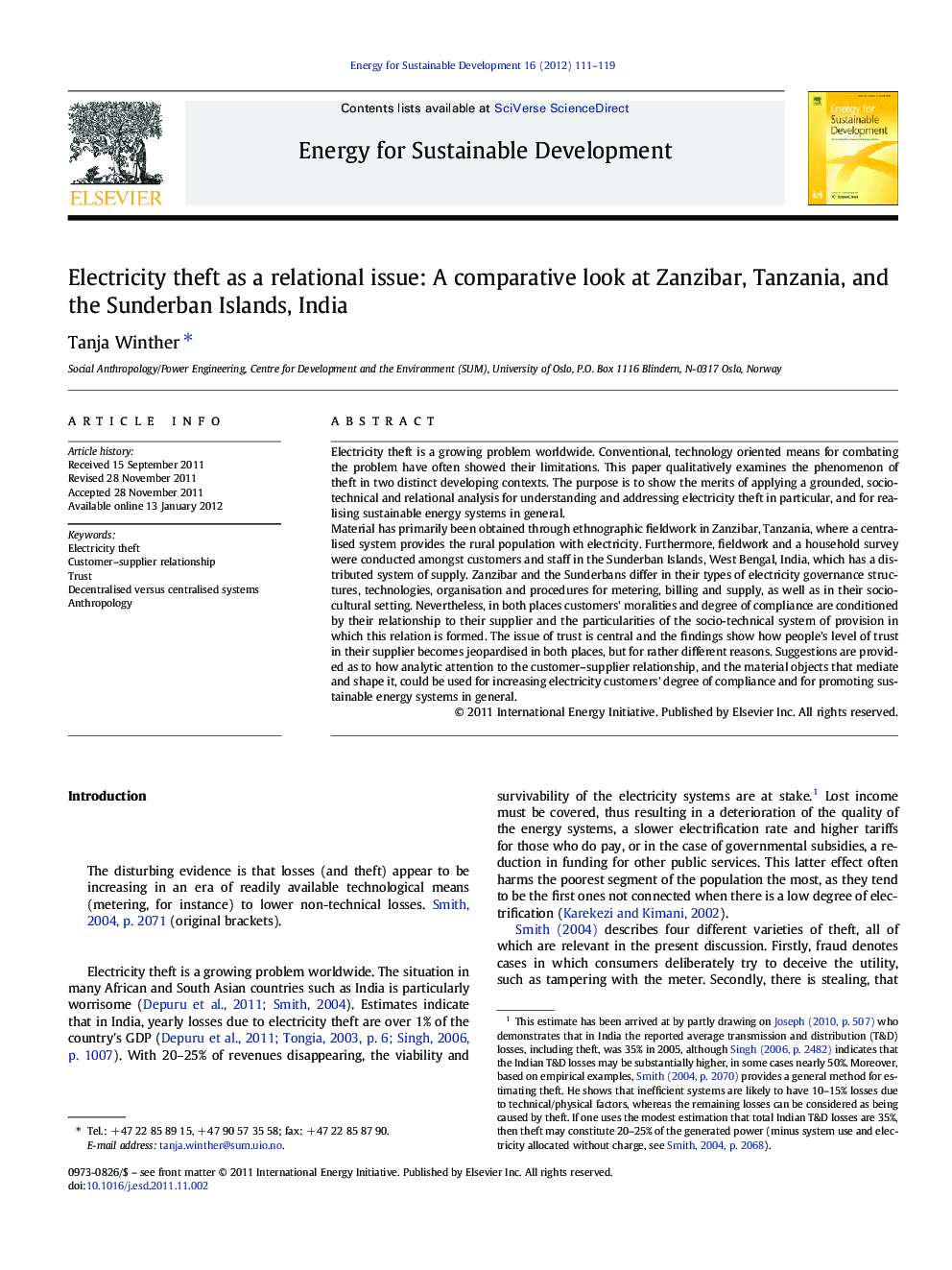| کد مقاله | کد نشریه | سال انتشار | مقاله انگلیسی | نسخه تمام متن |
|---|---|---|---|---|
| 1047272 | 945200 | 2012 | 9 صفحه PDF | دانلود رایگان |

Electricity theft is a growing problem worldwide. Conventional, technology oriented means for combating the problem have often showed their limitations. This paper qualitatively examines the phenomenon of theft in two distinct developing contexts. The purpose is to show the merits of applying a grounded, socio-technical and relational analysis for understanding and addressing electricity theft in particular, and for realising sustainable energy systems in general.Material has primarily been obtained through ethnographic fieldwork in Zanzibar, Tanzania, where a centralised system provides the rural population with electricity. Furthermore, fieldwork and a household survey were conducted amongst customers and staff in the Sunderban Islands, West Bengal, India, which has a distributed system of supply. Zanzibar and the Sunderbans differ in their types of electricity governance structures, technologies, organisation and procedures for metering, billing and supply, as well as in their socio-cultural setting. Nevertheless, in both places customers' moralities and degree of compliance are conditioned by their relationship to their supplier and the particularities of the socio-technical system of provision in which this relation is formed. The issue of trust is central and the findings show how people's level of trust in their supplier becomes jeopardised in both places, but for rather different reasons. Suggestions are provided as to how analytic attention to the customer–supplier relationship, and the material objects that mediate and shape it, could be used for increasing electricity customers' degree of compliance and for promoting sustainable energy systems in general.
► The electricity customer–supplier relationship is examined in two distinct contexts.
► The customer–supplier relationship partly conditions people's degree of compliance.
► The study indicates why top–down, technology focused approaches to energy may fail.
Journal: Energy for Sustainable Development - Volume 16, Issue 1, March 2012, Pages 111–119